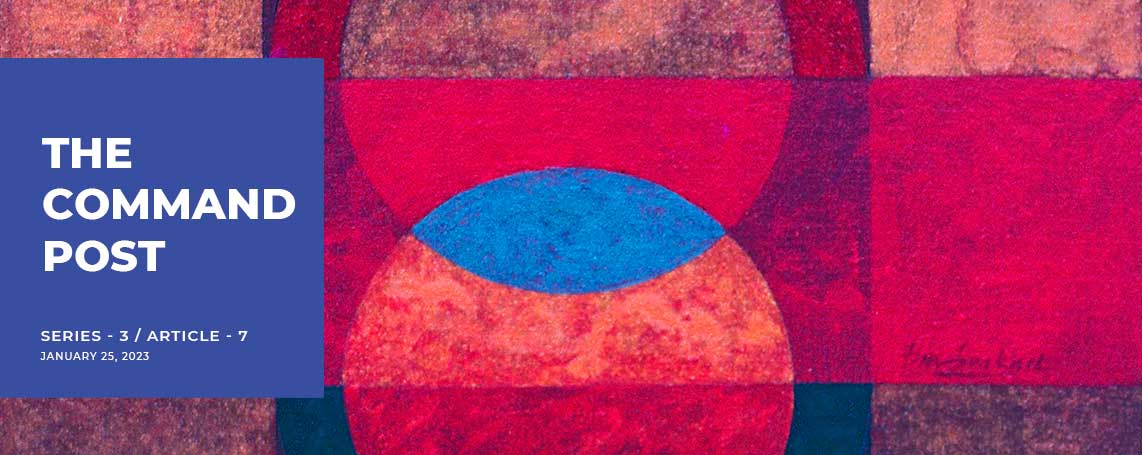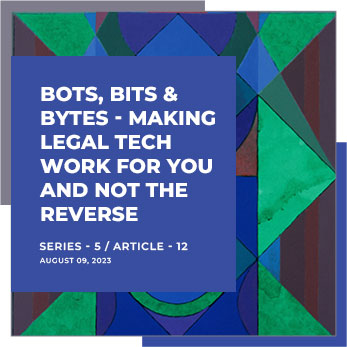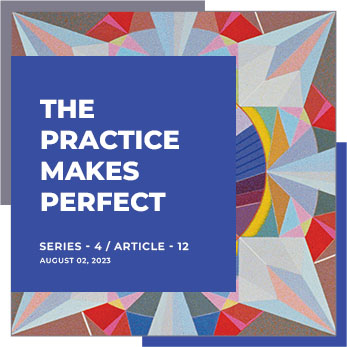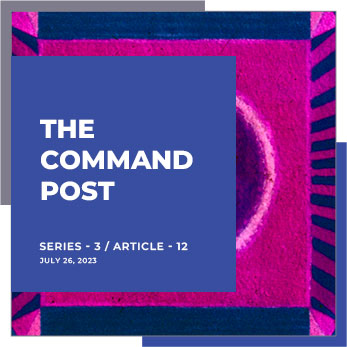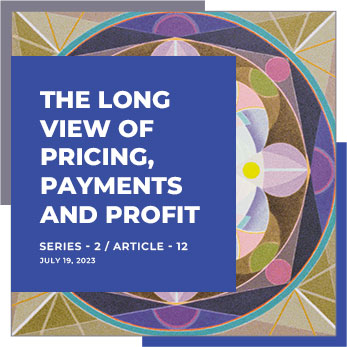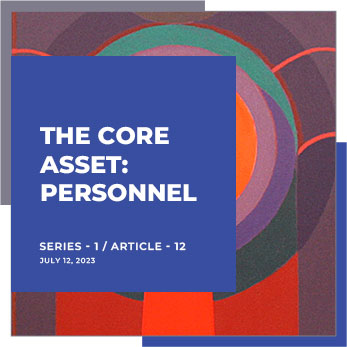“If litigation attorneys could be held liable for copyright infringement, the benefits associated with widely disseminated litigation documents would cease, and there would be a substantial loss to public welfare resulting from the higher costs of legal representation.”
What is an attorney’s work product if not the combination of his or her thoughts, plans, theories, strategies, and drafting, all in the name of representing the client? But can such work products, in general, be patented or copyrighted? In the U.S., the answer is ‘yes!’ Although patenting a business method is a relatively new class of patent, it is one which has nevertheless become quite a valuable asset in the business world.
We will examine the current state of how the concept of protecting a business method squares with what an attorney produces in the course of practicing law.
From Barrels to Bytes
At one time, the ‘business method exception’ was a rationale for the rejection of a patent application. In fact, in 1950, when Joseph E. Seagram & Sons attempted to obtain a patent for their ‘unique blind taste-testing’ method in order to discover whiskey drinkers’ preferences, the U.S. Patent Office rejected the application, a decision that was upheld by the Federal court. By the 1980s, with the emergence of computerized methods of engaging in commerce, that exception was revisited and found to no longer be practical, given the extent to which new and innovative business methods were being developed at a rapid pace utilizing sophisticated and proprietary algorithms and formulas. The landmark case that essentially did away with the business method exception to business inventions was State Street Bank v. Signature Financial Group, (47 USPQ 2d 1596 (CAFC 1998)).
So, what is a Business Method?
Basically, a business method describes the individual, orderly steps that are followed in order to accomplish a particular result. Whether or not the method is unique and otherwise satisfies the criteria for patentability is a matter for the USPTO to decide. But when applied to legal (and accounting) practice methods, patent protection can become quite a muddied affair: after a meeting of the ABA’s tax section where a particular estate planning device was discussed, participants subsequently received notice in writing that the disclosed tax practice method, Stock Option Grantor Retained Annuity Trust patent (SOGRAT) was in fact patented and that practitioners who employed the method for their client—without paying royalties—would be sued for patent infringement.
The Controversy Widens
The controversy surrounding the patenting of practice methods of tax lawyers soon became quite turbulent as lawyers found themselves having to worry about added cost and liability before utilizing what were previously believed to be commonly accepted practice methods. To conduct a due diligence search as to patent protection before drafting a tax structure instrument for a client would certainly impose an unprecedented burden. In an effort to stem the monetizing of tax shelters, the IRS issued Circular 230, which modified the rules for tax opinions that are considered ‘covered opinions.’ Many observers claimed that tax planning patents might come within those rules. In addition, the tax bar voiced strong opposition to the granting of a patent on a tax planning method developed as per existing tax laws.
Yet, proponents of patenting tax planning methods pointed out that, indeed, those methods set forth specific steps for creating entities, moving client assets into or out of those entities, and creating innovative financial instruments; in other words, those methods clearly fell with the concept of business methods, and were therefore patentable. At this time, the controversy over whether patent law applies to the practice of law, and if so, to what extent, continues to swirl.
Copyright Protection
But it is not just patent protection that has been raised as a form of IP protection pertaining to a lawyer’s work product, but also copyright law. According to Ralph D. Clifford, Professor of Law at Southern New England School of Law, the main code that protects a lawyer’s work product is copyright law, specifically, the Copyright Act of 1976, Title 17 of the U.S. Code.
If copyright law is the basis for protecting the expressions of an author, and prevents unauthorized copying of books, movies, and other such intellectual property, then certainly the work product of an attorney that is expressed in writing should also enjoy copyright protection. A law firm that created its own forms for condominium purchases threatened to sue a firm which basically copied the forms for its own use. Reportedly, the offending firm, in fact, agreed to pay a settlement amount rather than risk a copyright lawsuit.
In another instance, a firm which drafted its own complaints for securities litigation found that a firm which was selected as lead counsel had copied its complaints. Although there is no indication that the drafting firm sued, it apparently followed up by adding a copyright notice to all subsequent complaints that the firm drafted.
Other Issues Abound
But just as there are claims of copyright infringement, so too are there defenses for ‘fair use’. How such defenses will be applied to a lawyer’s work product will be subject to the same tests as for other infringement claims. Then there is the question as to whether documents filed in court in the course of the litigation—without any indicia of copyright—are considered to be in the ‘public domain’. For the lawyer-employee, a further complication arises as to just who the work product belongs to. The work product may very well not belong to the lawyer if produced in the course of his or her employment, but in order for it to belong to the firm, the status of the lawyer as an employee must first be addressed.
The controversy over what IP rights an attorney has in his or her work product is not yet over and considering who the litigants are, it will not likely be settled anytime soon.
Executive Summary
The Issue
What IP rights does an attorney have in their work product?
The Gravamen
Increasingly, attorneys are asserting IP rights in their business methods and creative drafting.
The Path Forward
Although an attorney may wisely wish to give notice of copyright, enforcing those rights might possibly disrupt common notions of public policy.
Action Items
Status of the Attorney:
Before pondering what is protected as the intellectual property of an attorney’s work product, the first inquiry must be who is asserting the right. A law firm, or its employee?
Patent Conundrum:
Despite various efforts to obtain patent protection for tax planning methods as ‘business methods’, tax practitioners would do well to consider the strong opposition by the American College of Tax and Estate Counsel (ACTEC) as expressed in writing to members of Congress.
Copyrights in Pleadings:
Although a particular, unique complaint displaying a notice of copyright as to form might meet the requirements for copyright protection, the practitioner should not expect that legal filings, in general, will enjoy such protection due to the public policy and fair use issues related thereto.
Legal Forms:
For the attorney or law firm investing time and creativity in preparing its transactional legal forms, it is advisable to display a notice of copyright in order to discourage others from abusing that intellectual property.
Further Readings
- https://www.lawinsider.com/dictionary/attorney-work-product
- https://www.strategicpatentlaw.com/patentability/business-method-patents/
- https://www.actec.org/resources/comments-concerning-patentability-of-tax-planning-methods/
- https://www.techdirt.com/2009/08/06/are-legal-briefs-filed-with-a-court-covered-by-copyright/
- https://scholarship.law.umassd.edu/umlr/vol3/iss1/1/
- https://www.researchgate.net/publication/228146841_The_Highest_Form_of_Flattery_Applic ation_of_the_Fair_Use_Defense_against_Copyright_Claims_for_Unauthorized_Appropriation_ of_Litigation_Documents

